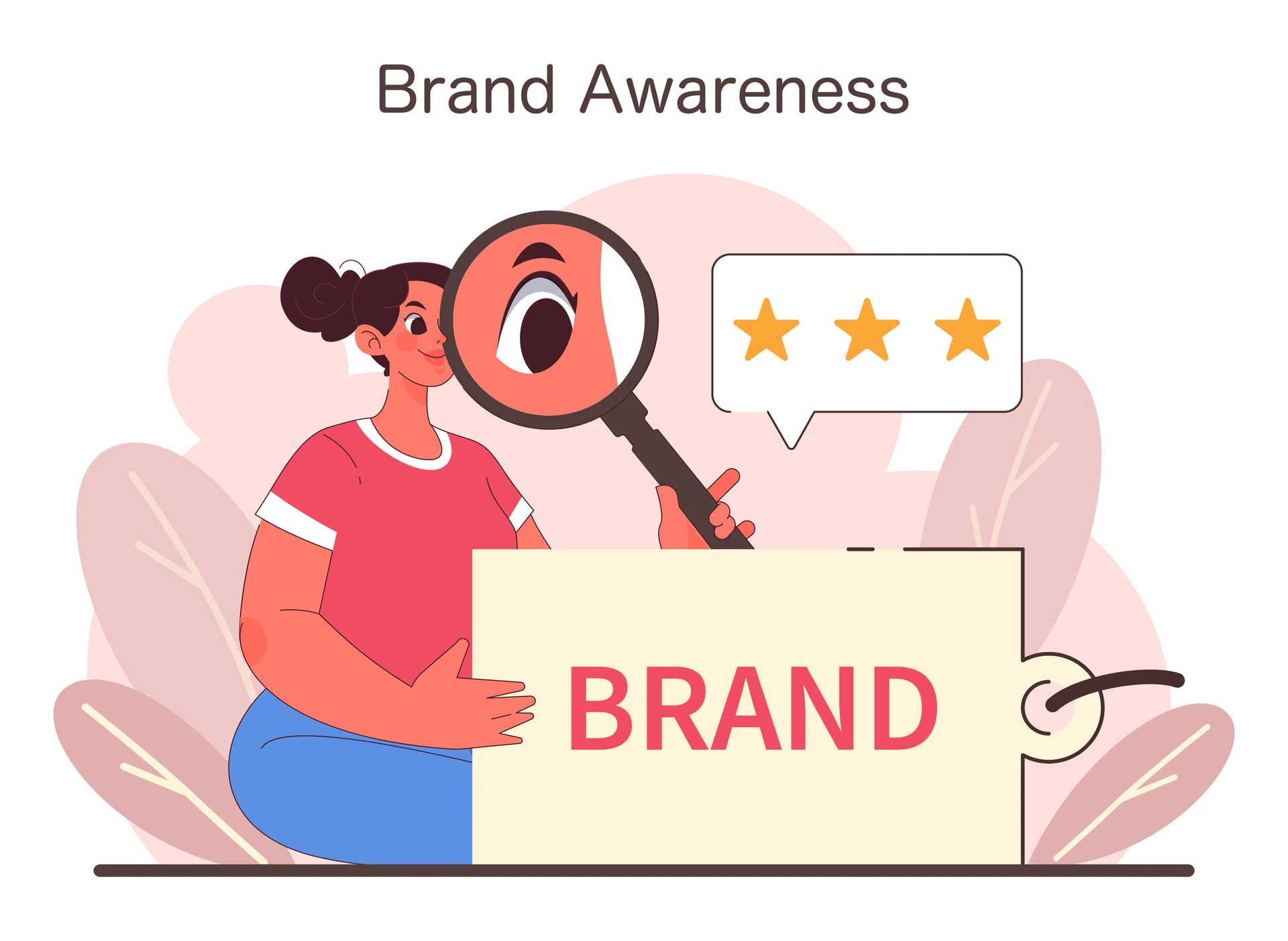In 2025, brand marketing is evolving at lightning speed, driven by changes in technology, consumer habits, and market trends. With competition fiercer than ever, standing out requires more than just flashy ads it’s about creating meaningful, personal experiences that connect with people on a deeper level. The goal is to make your brand unforgettable by telling stories that resonate and building emotional bonds that inspire loyalty.
Brand marketing isn’t just about selling; it’s about crafting an identity that reflects who you are, what you stand for, and why people should care. It’s how brands create a personality, from logos and visuals to the tone of voice and messaging, that sticks in people’s minds. The focus today is on authenticity being real and consistent across every touchpoint, whether that’s on social media, in an ad, or in a conversation.
In 2025, the best brands are the ones that embrace storytelling, use innovative tools to connect with their audience and stay true to their mission. By doing this, they not only earn trust but also build communities of loyal fans who keep coming back. It’s not just marketing anymore; it’s about creating relationships that last.
Why Every Brand Needs a Strong Brand Marketing Strategy in 2025
A strong brand marketing strategy is vital for staying competitive in an ever-changing market. With the rise of new technologies, shifting consumer behaviors, and emerging platforms, brands must continuously evolve their marketing tactics to meet the expectations of their audience. A well-defined strategy helps brands stay relevant, adapt to trends, and build lasting connections with consumers.
Branded content has become a key component of modern brand marketing strategies. By telling compelling stories and creating valuable, engaging content, brands can foster deeper emotional connections and drive consumer loyalty. The Branded Content White Paper provides valuable insights into how businesses can integrate branded content effectively into their overall strategy, ensuring a seamless blend of marketing and storytelling to capture and retain audience attention in 2025.
7 Reasons Why Brand Marketing Is the New King in Marketing Strategy
1. Personalized Content Creation
Brand Marketing empowers businesses to create content specifically tailored to their target audience. By leveraging in-depth consumer data and insights, brands can produce campaigns that address audience preferences, behaviors, and aspirations. Personalization fosters a sense of belonging, making customers feel understood and valued. For instance, custom videos or social media posts tailored to specific regions or interests can significantly enhance engagement. Furthermore, branded content can adapt content to reflect cultural nuances, ensuring a more inclusive approach. This ability to deliver relevant, personalized content helps brands differentiate themselves in a crowded marketplace, ultimately leading to stronger customer loyalty and retention.
2. Enhanced Storytelling
Storytelling lies at the heart of successful marketing, and HT Brand Studio excels at crafting compelling narratives. These studios delve deep into a brand’s history, values, and mission to create stories that resonate with the target audience. Through videos, blogs, or social media campaigns, they build an emotional connection that goes beyond products or services. For example, a sustainability-focused brand can use storytelling to highlight its eco-friendly practices, inspiring customers who share the same values. By tapping into human emotions, branded studios make brands memorable. The result is a narrative that not only attracts attention but also forges lasting bonds with consumers.
3. Multichannel Marketing Integration
A cohesive presence across platforms is essential, and HT Brand Studio can ensure that content is distributed effectively on social media, websites, email campaigns, and even offline channels. For instance, a brand might create a series of videos for YouTube, snippets for Instagram Reels, and blog posts for a brand’s website—all supporting the same campaign theme. This consistency reinforces the brand’s message, ensuring it remains top-of-mind for consumers. By unifying the marketing strategy across platforms, HT Brand Studio can optimize reach and engagement, ensuring that the audience encounters the brand wherever they go online.
4. Strengthened Brand Identity
A strong brand identity is key to standing out in a competitive market, and branded content plays a pivotal role in shaping and maintaining it through the brand’s unique voice, aesthetics, and values, ensuring consistency across all touchpoints. For example, a luxury brand might focus on producing high-quality, visually stunning content that conveys elegance and sophistication. Over time, this consistent portrayal strengthens recognition and fosters trust among consumers.
5. Better ROI on Content Marketing
Investing in branded content can yield substantial returns on content marketing efforts. By using analytics tools, brands can monitor the performance of campaigns and identify what resonates most with the audience. This data-driven approach enables them to refine content, ensuring optimal engagement and conversions. For instance, a brand might find that video tutorials perform better than infographics for a specific demographic, allowing them to allocate resources more effectively.
6. Improved Consumer Trust
Trust is a cornerstone of brand loyalty, and content that comes from the brand seems authentic and high-quality content. Unlike traditional advertising, which can feel intrusive, studio-generated content often provides value through entertainment, education, or inspiration. For example, a branded studio might produce a documentary-style video showcasing a company’s philanthropic efforts, reinforcing its credibility and goodwill. Consumers are more likely to trust brands that demonstrate transparency and authenticity. Branded studios also focus on creating content that feels human and relatable, avoiding overly polished or sales-driven messages. This approach fosters genuine connections, encouraging consumers to advocate for the brand.
7. Innovation and Creativity at Scale
Brande studios thrive on pushing creative boundaries, making innovation a key strength. By experimenting with cutting-edge technologies like augmented reality (AR), virtual reality (VR), and artificial intelligence (AI), these studios produce engaging and memorable experiences. For instance, an AR-powered campaign could allow users to virtually try on products, creating an interactive shopping experience. Additionally, branded studios frequently explore new formats, such as gamified content or live-streaming events, to keep audiences excited and engaged. This commitment to creativity ensures that brands stay ahead of industry trends. As a result, branded studios enable companies to captivate audiences and maintain a competitive edge.
B2B Brand Marketing Examples: Airbnb and Slack
Airbnb and Slack have mastered B2B brand marketing by crafting strategies that resonate deeply with their target audiences and foster long-term connections. Airbnb revolutionized the travel industry by emphasizing community, culture, and authenticity. Their brand campaigns, which include partnerships with local hosts and sharing success stories, highlight the financial benefits of hosting while emphasizing Airbnb’s commitment to fostering a sense of belonging. By creating intuitive platforms and providing resources tailored to property managers and businesses, Airbnb has positioned itself as a trusted partner in the travel and hospitality sectors. Campaigns like “Airbnb for Work” directly target corporate audiences, offering cost-effective, flexible solutions for business travel. This strategy, combined with a clear visual identity and commitment to core values, has made Airbnb a favorite in both the B2B and B2C markets.
Similarly, Slack transformed workplace communication with its user-friendly design and collaborative features. The freemium model allowed businesses to experience its value first-hand, leading to organic adoption. Slack’s brand marketing leans on humor, relatability, and real-world success stories, showcasing its impact on productivity for companies of all sizes. Campaigns like “So yeah, we tried Slack…” humorously highlight common workplace communication challenges, while customer success stories with giants like IBM provide credibility. Furthermore, Slack excels at building communities, offering forums and resources that enhance the professional lives of its users. By positioning itself as not just a tool but a hub for collaboration, Slack has become indispensable for teams worldwide.
Both brands exemplify the power of storytelling, educational content, and community-driven approaches in building impactful B2B connections. Their consistent efforts to address the needs of their audiences, backed by relatable messaging and clear value propositions, solidify their places as leaders in their respective industries.
How to Get Started: Building Your Brand Marketing Strategy with Branded Content
Step 1: Understand the Power of Branded Content
Recognize that branded content goes beyond traditional advertising. It’s about storytelling that connects with your audience and creates lasting impressions. This strategy fosters deeper customer relationships, leading to increased brand loyalty and engagement. HT Media’s Brand Studio Team excels in this space, merging strategic insights with creative narratives to produce impactful and memorable content.
Step 2: Learn from the Experts
Studying how successful brands leverage branded content is key to understanding what works. The HT Media Branded Content Whitepaper offers a wealth of knowledge, showcasing real-world examples and effective practices. It breaks down the three critical elements of branded content: Concept, Content, and Connection.
Step 3: Create High-Impact Content with Proven Strategies
Focus on storytelling to build trust and foster engagement. Your content should reflect your brand’s values and resonate with your target audience. The Whitepaper provides actionable tips for crafting content that bypasses ad blockers, adapts to shifting consumer behaviors, and achieves measurable outcomes.
Step 4: Measure Success and Optimize Your Strategy
Measuring the effectiveness of branded content can be challenging. HT Media’s Whitepaper presents a structured approach, emphasizing impact-driven KPIs over superficial metrics like clicks. Use these insights to refine your strategy continuously, ensuring that your branded content remains compelling and effective.
Step 5: Partner with Industry Leaders for High-Impact Results
Collaborating with experienced professionals like HT Media’s Brand Content Studio can elevate your strategy. Their deep understanding of current marketing trends and storytelling expertise makes them an ideal partner for achieving your brand’s objectives.
Want to Dive Deeper? Download the Whitepaper for Free!
For a complete guide on building an effective brand marketing strategy with branded content, download the HT Media Branded Content Whitepaper. It includes expert tips, case studies, and a clear roadmap for creating impactful branded content.
Download the Whitepaper Now and start your journey toward successful brand marketing in 2025!
Conclusion: Why Brand Marketing Matters in B2B
Brand marketing is essential for long-term success, particularly in the B2B space, where trust, credibility, and differentiation are critical. It helps businesses stand out in competitive markets, build trust with decision-makers, and shorten sales cycles by fostering familiarity and confidence. A strong brand encourages loyalty, supports premium pricing, and enhances customer retention, ensuring consistent growth. Additionally, it attracts top talent, strategic partners, and eases expansion into new markets or product categories.
In B2B, where decisions involve multiple stakeholders and longer cycles, brand marketing lays the foundation for deeper connections and lasting relationships. Ultimately, it transforms businesses from being just another vendor into a trusted partner, driving sustained growth and market leadership.
Frequently Asked Questions
What is brand marketing?
Brand marketing is the strategic process of creating and promoting a brand’s unique identity to connect with a target audience and differentiate from competitors. Unlike traditional advertising, which focuses on immediate sales, brand marketing aims to build long-term relationships and emotional connections with consumers. It involves crafting a consistent brand personality, visual identity, and messaging that reflect the brand's values and mission. Effective brand marketing uses storytelling, logos, and design elements to shape public perception. The goal is to foster trust and loyalty, ensuring that the brand remains memorable and relevant across various digital and traditional platforms.
Why Is Brand Marketing More Important Than Ever in 2025?
In 2025, brand marketing is crucial due to rapidly evolving technologies, changing consumer behavior, and the growing digital landscape. As competition intensifies, brands need to stand out by creating authentic and personalized experiences that resonate with their target audience. A strong brand marketing strategy helps brands adapt to trends, stay relevant, and build long-lasting connections. This year, the focus is on delivering consistent messages that foster trust and loyalty, ensuring that brands maintain a competitive edge in an ever-shifting market.
How Has Technology Impacted Brand Marketing Strategies in 2025?
Technology has significantly transformed brand marketing strategies in 2025. Brands now have access to advanced tools for personalization, data analysis, and customer engagement. AI-driven platforms enable brands to tailor content and ads to specific audience segments, while social media and digital platforms provide direct channels for interaction. These technologies allow brands to create immersive experiences, gather real-time feedback, and track campaign effectiveness. The integration of technology helps in shaping a cohesive brand identity, ensuring that brands deliver consistent and engaging experiences across various digital touchpoints.
What Role Does Storytelling Play in Brand Marketing Today?
Storytelling is a core component of brand marketing in 2025, serving as a way to emotionally connect with consumers. Brands use storytelling to communicate their values, mission, and personality, making them more relatable and memorable. Instead of just promoting products, storytelling enables brands to share authentic experiences that resonate with their audience. This approach builds trust and loyalty, creating a deeper emotional bond. By crafting compelling narratives, brands can differentiate themselves in a crowded market and create lasting impressions that go beyond a simple transaction.
How Can Brands Measure the Success of Their Brand Marketing Efforts in 2025?
In 2025, measuring the success of brand marketing goes beyond traditional metrics like clicks and impressions. Brands focus on engagement, emotional connection, and long-term loyalty as key indicators. Effective brand marketing is assessed through KPIs like brand awareness, social media engagement, customer retention rates, and the sentiment of online interactions. Tools like social listening, customer surveys, and in-depth analytics provide valuable insights into how consumers perceive the brand. By monitoring these indicators, brands can continuously refine their strategies, ensuring that they remain relevant and impactful in a competitive market.
Ready to take your brand to the next level? Connect with us today to explore how HT Media can amplify your presence across our diverse portfolio of 25+ brands and properties. Let's turn your brand vision into reality!


















Comment